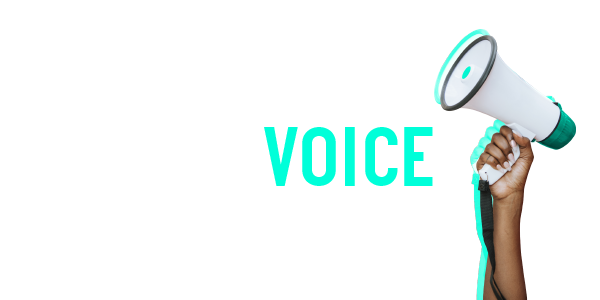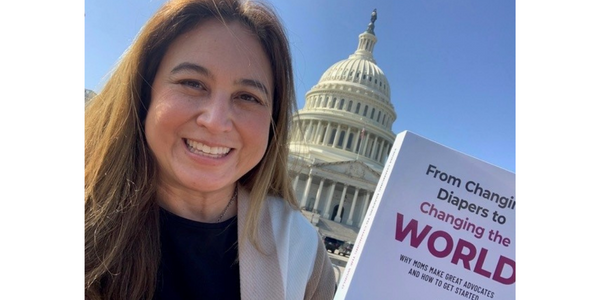|
|
|||||
|
International Women's Day, Women's History Month, Mother's Day (in the UK). The month of March is all about women, so we're dedicating this edition to women everywhere! But first, we need to talk about climate change. Last month, we asked you to tell us if you're seeing the impacts of climate change where you live and how your community is adapting. Over 1200 of you responded and 85% said you are experiencing the impacts of climate change. Eight percent weren't sure and only seven percent said they don't see any impact. Many ONE supporters described the severe conditions they're facing today including droughts, extreme heat, poor crop harvests, and flooding — particularly in countries like Australia, Brazil, Mexico, Kenya, Nigeria, Ethiopia, Botswana and others. Unfortunately, across the globe supporters reported an almost entirely absent response from their governments. While some of you told us about local measures to conserve water, plant trees, and adopt more sustainable farming methods, the steps communities are able to take to adapt to the changing climate are small-scale and woefully underfunded. A far cry from the global transformation the biggest crisis of our time calls for. A supporter from Kenya said, "The communities suffer a lot and it is hard to adapt where more than 5 million people are facing starvation due to drought which has affected many parts of Kenya." |
|||||
|
|
|||||
💡 Solutions journalism story of the monthMitigating internal displacement, one skilled woman at a time 
|
|||||
|
|
|||||
🤔 Poll: How is climate change impacting your life today?Is climate change affecting your health? Your community? Your livelihood? Does your community have the tools it needs to respond? Tell us how climate change is affecting your life and we'll use it in our global campaign calling for climate-vulnerable countries to have the tools they need to respond to the climate crisis. |
|||||
|
|
|||||
Your activism quick hits💥 ONE Minute On: Why the fight for gender equality isn’t over. 🐘 Meet Kenya's Wildlife Warriors in the very first African-made wildlife documentary series. Dr. Paula Kahumbu, CEO of conservation non-profit Wildlife Direct is leading the fight to save Africa's wildlife. 🎨 How a Nigerian artist is using art to help fight cancer 🔬 From breakthroughs in DNA to the creation of Monopoly. Here are 10 female inventors you should definitely know about. |
|||||
|
|
|||||
Your activism journey💰 Do you know a young person aspiring to build a career in development policy? The Samantha Singh Memorial Award offers young people the chance to win $1000 and a career advice session with a senior ONE staff member. 🌍 Dubbed a survival guide for humanity, here's what you need to know about the new IPCC report on the climate crisis. 👶 Access to affordable childcare holds millions of women back from returning to work. Campaigners reflect on the new changes to childcare announced in the UK. 📣 ONE U.S. activist Cynthia gives 4 tips on how to increase your advocacy impact. (And read more about her activism journey below!) |
|||||
|
|
|||||
People changing the world: Cynthia Changyit Levin
Can you tell us a little bit about yourself? My name is Cynthia Changyit Levin. I live in St. Louis, Missouri in the United States. I’m the mom of two teenagers who have been active with me in my advocacy since both of them were pre-schoolers. What inspired you to become an activist? Most of my activism centers on global maternal and child health, which covers nutrition, immunizations, education and more. Motherhood was the beginning of my activism. When my first child was born, I thought deeply about what it means for moms living in poverty around the world to not have the resources to care for their little ones. I’m so glad I had friends to show me how I could be involved in fighting poverty even while I was raising babies. They showed me I could write letters to Congress even in the middle of the night when a baby woke me for a diaper change! Having a productive outlet for all my midnight worries was very empowering. And now I coach other activists. You recently wrote a book about your activism called, From Changing Diapers to Changing the World: Why Moms Make Great Advocates and How to Get Started. What inspired you to write this book? When I ended my engineering career to become a stay-at-home mother, I found many other new moms struggling with power and self-identity issues. I want moms to see that motherhood is a powerful aspect of our lives. Becoming a mom-advocate can reveal pathways to new skills, new ideas, and a new purpose during a time of natural transition. I write especially for moms because we are a demographic often held back by misogyny or the demands on the energy we spend caretaking. But when we work together, we can be a powerful force pointing out common sense solutions and voicing the moral argument for humans to be good, decent, and kind. My goal is to empower moms to move from thinking, "I can’t change the world. I’m just a mom” to, “I can change the world because I’m a mom!" What’s the best thing about writing a book? Did writing the book have an impact on your activism? I loved sharing stories of incredible activists with diverse backgrounds who inspire me. The book highlights the work of moms from different locations, ethnicities, economic backgrounds, and issue expertise. I hope every mother can pick up my book and find someone they identify with in it. The book definitely impacts my activism because it opens doors for me to talk about advocacy to groups I couldn’t access before. It lends excitement and credibility to the same activities that ONE activists do every day, so people who are not activists are more open to hearing about it. What was the hardest or least enjoyable part of publishing a book? How did you persevere? I relate the hardest part of publishing a book to the hardest part of being an activist. It’s difficult for me to put myself forward and promote my book, just like it was hard at first to ask my senators for $2 billion dollars for the Global Fund to Fight AIDS, Tuberculosis and Malaria. There’s an inner critic inside many of us that says, “who am I to ask for such things?” But the way to persevere in both situations is to remind myself of the higher reason behind the requests. I ask for Global Fund assistance to grant relief and support to people suffering from diseases of poverty. In a similar way, I wrote the book to inspire more advocates to help people in poverty or people suffering from other injustices. |
|||||
|
|
|||||
Did you like today's email?Loved it Mehhh Hated it |
|||||
|
|
|||||
|
|||||
|
This email was sent by ONE.ORG to [email protected].
You can unsubscribe at any time. ONE Campaign Copyright © 2023 The ONE Campaign, All rights reserved. Privacy policy. |

